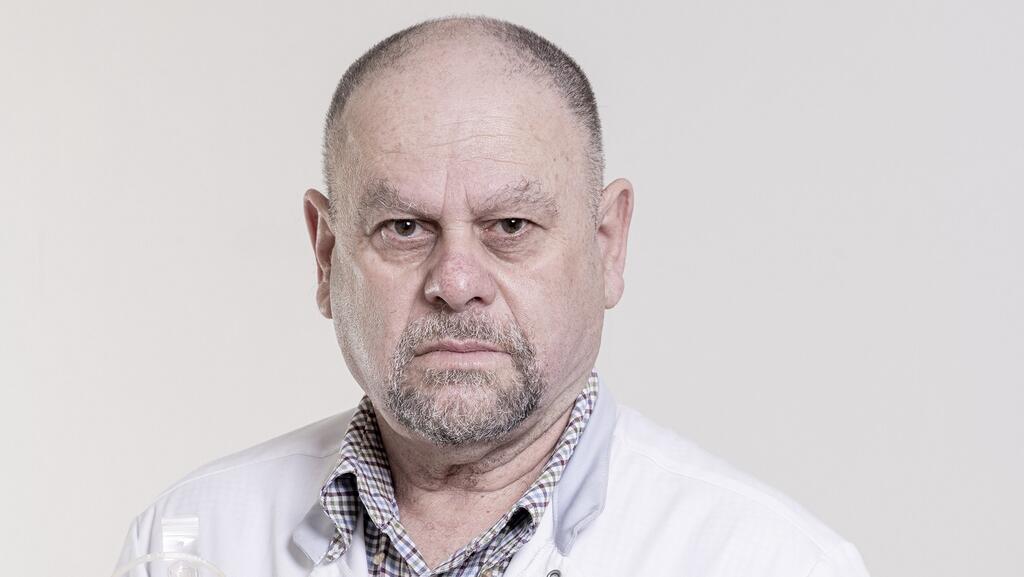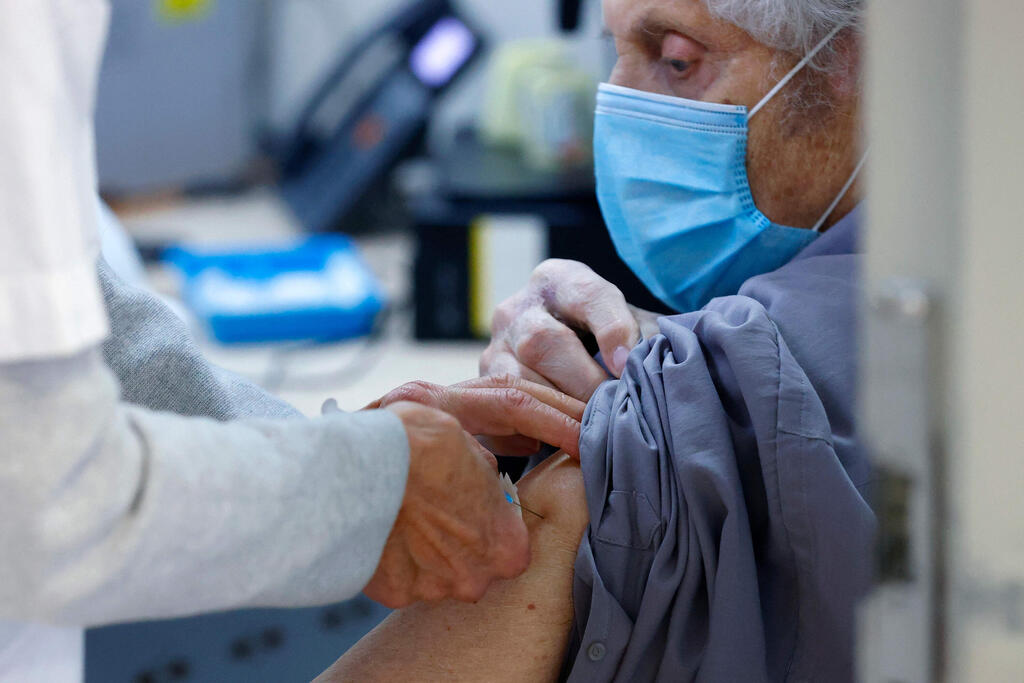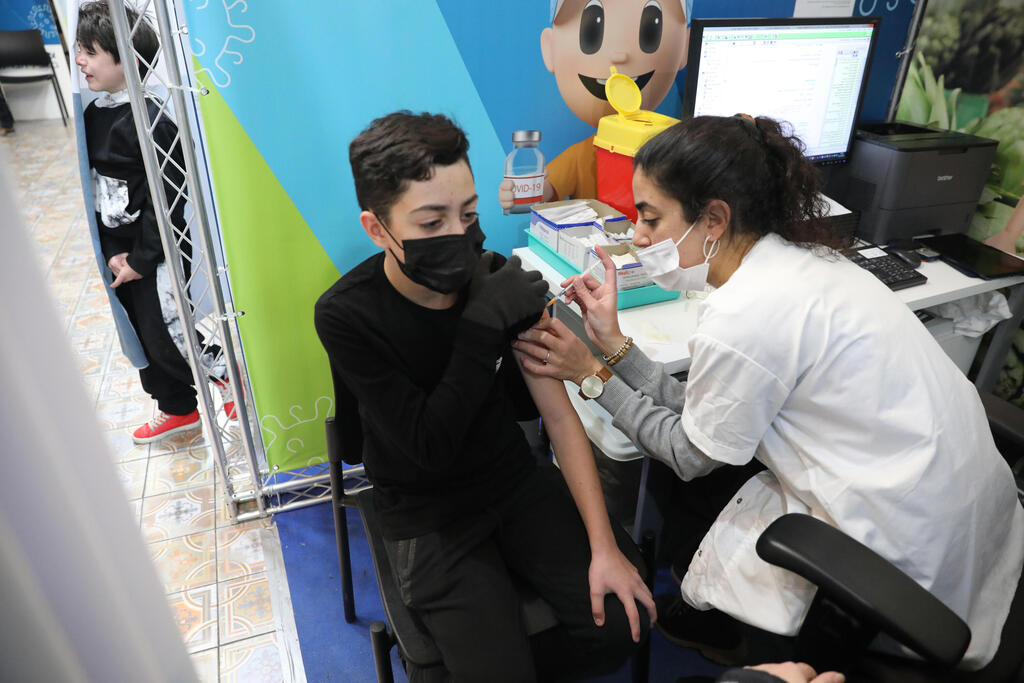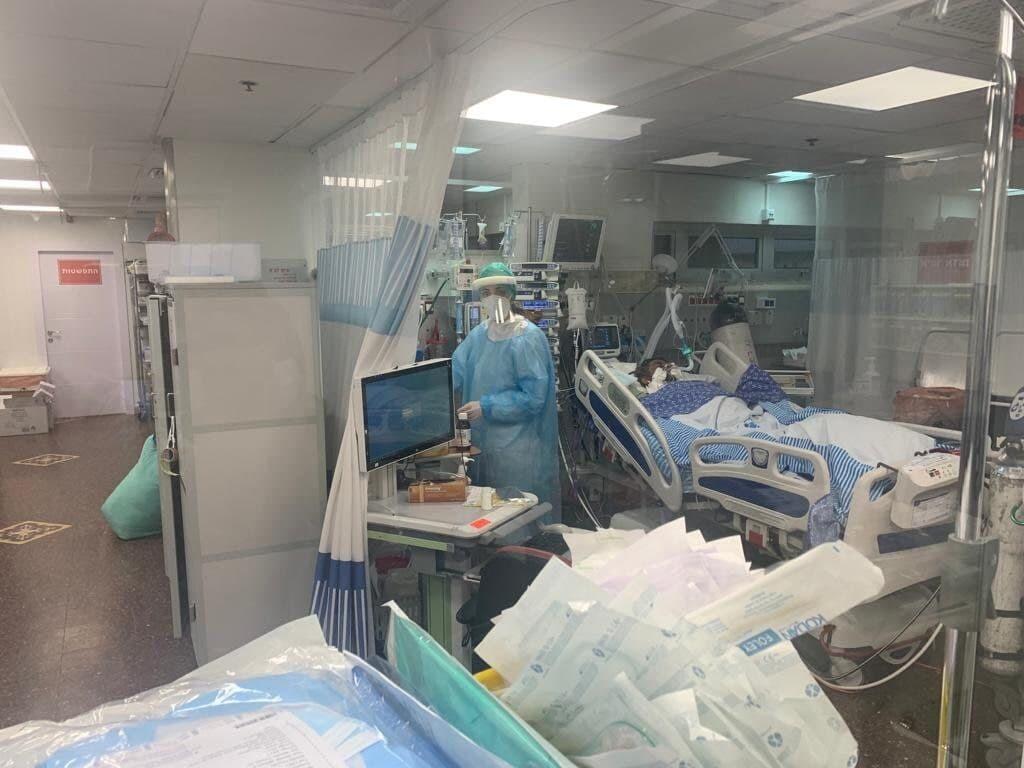Getting your Trinity Audio player ready...
The seriously ill COVID-19 patients at Hadassah Ein Kerem Hospital in Jerusalem are all either unvaccinated or did not receive a third dose of the Pfizer-BioNTech vaccine, the head of the hospital’s coronavirus ward has said.
As of Monday, 17 patients were hospitalized in Hadassah Ein Kerem’s coronavirus ward. Eight are in serious condition and a further two are critically ill.
Across Israel, more than 200 people have been hospitalized and 110 are in serious condition as the highly contagious Omicron variant drives a massive spike in infection.
To combat the surge, Israel has begun offering a fourth dose of the Pfizer-BioNTech vaccine to people aged 60 and over as well as medical workers.
The Media Line sat down with Prof. Dror Mevorach, head of the COVID-19 and Internal Medicine wards at Hadassah Ein Kerem Hospital in Jerusalem, to discuss what lies ahead as the world enters the third year of the pandemic.
THE MEDIA LINE: There are many people talking about getting a fourth dose of the vaccine. What are your thoughts on this?
Prof. Dror Mevorach: I’m not a great supporter of this idea, the reason being that I think the third vaccine was not even a booster; it was part of the vaccine itself. The Pfizer vaccine should have been three [doses].
I think we should maybe prepare for a Pfizer vaccine in March, which is directed at the Omicron [variant] and not the general vaccine that we have so far.
I’m not sure we have evidence that a fourth vaccine will decrease hospitalizations. Probably it will decrease the spread of the disease, which is also important, but I’m not sure it’s worth the fourth vaccination for all the population.
I just don’t see a clear indication for it, but not because of safety reasons.
TML: What about vaccinating children, especially the younger ones? Many parents have not yet taken their kids to get the shot. What do you think about that?
DM: I think children should get vaccinated. We’re talking about those from the ages of 5 to 16. We’re following the adverse effects of vaccination in the Israeli population – especially the effect of myocarditis – and we were able to summarize our findings in the New England Journal of Medicine.
I think that children will suffer less from myocarditis than adults do. I see it already. Children need [the jab] not only to prevent disease but also for post-disease consequences like PIMS (pediatric inflammatory multisystem syndrome) or MIS-C (a multisystem inflammatory syndrome in children).
They should be vaccinated, and we gain much more than the risk of harm. I would recommend to all parents to vaccinate their children.
TML: The Omicron variant has caused a massive spike in cases worldwide. What do know about this variant so far?
DM: Most of the patients that are in severe or critical condition are unvaccinated. The only seriously ill patient who was vaccinated [received] two vaccines and not the third one.
What we see by now is that the disease course [for Omicron] seems a little bit milder and we hope that it will continue this way. We all hope that this will be the end of the pandemic, but we cannot count on it. We have to be ready for some other scenarios, like severe numbers of hospitalizations. The most severe [period] was the third wave, where we had close to 200 patients a day in Hadassah hospital.
TML: What is the most difficult or challenging thing right now for medical professionals?
DM: We don’t speak about it much, but the medical staff is under continuous stress. They see young people dying, they have to work quite intensively, and they’ve actually developed some [problems], stress and I would even call it PTSD. In my department, we started to have weekly meetings with a psychologist in order to ease this. I think it’s very important.
TML: With the pandemic showing no sign of slowing down, what can we expect moving forward?
DM: We’re not in the same spot we were in, in March 2020. We’re much more familiar with the disease. We’re vaccinated. We have better medications. I think in some places the problem is in infrastructure and the possibility of [treating] many patients at once.
I think COVID-19 will [become] a more chronic, endemic disease where [we’ll have to get] a yearly vaccination. This is one scenario. Another is that the disease might disappear, as happened to SARS-1 about 20 years ago. It arrived and after two years it disappeared.
Until then, we have to continue to deal with it, live with it, and try to conduct a reasonable life.





